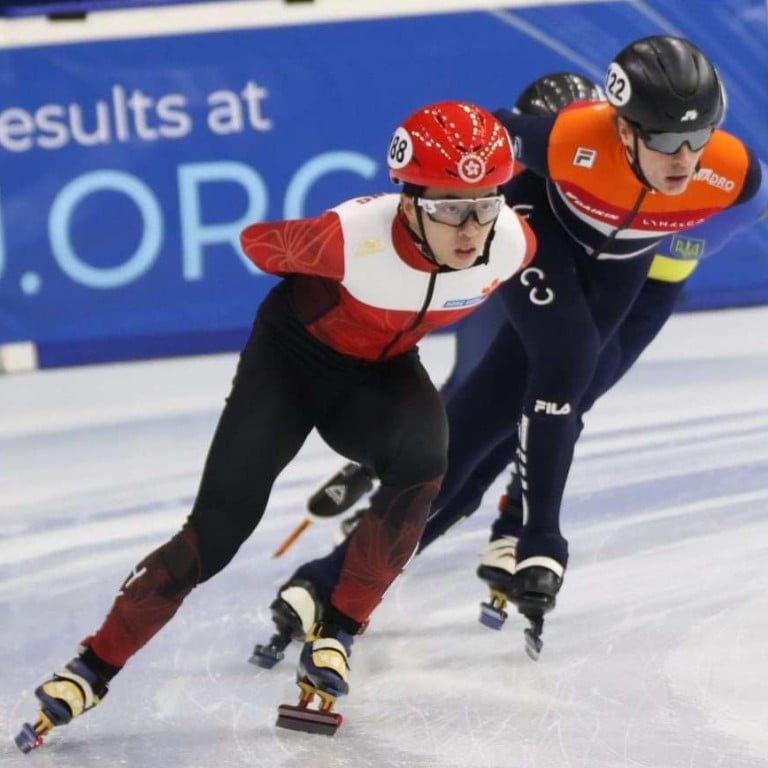
Beijing Winter Olympics: Sidney Chu, Hong Kong’s unwavering speed skater, finally living out his dreams
- The 22-year-old powered through an underdeveloped local scene and a career-threatening injury to earn Beijing 2022 qualification
- ‘That process of recovery and fighting through pain, even when it’s very uncertain, showed how much the sport meant to me,’ says Chu
At just 22, the short-track speed skater has his best competitive years ahead, but becoming one of the city’s top skaters has already taken some toll.
Whether it is training abroad to make up for the lack of standardised local rinks, recovering from a nasty fractured foot in his teens, or undergoing three weeks’ quarantine for a pre-Olympics Hong Kong pit-stop to promote the sport, Chu has been through it all.
Putting the finishing touches in training at the Capital Indoor Stadium, he told mainland reporters in perfect northeastern Mandarin about how “very proud and lucky” he was able to “fulfil my dream and stand on the Beijing Games starting line as a Chinese”.

A keen ice hockey player in his youth, Chu would eventually find a substitute for the thrill and exhilaration he felt from chasing pucks.
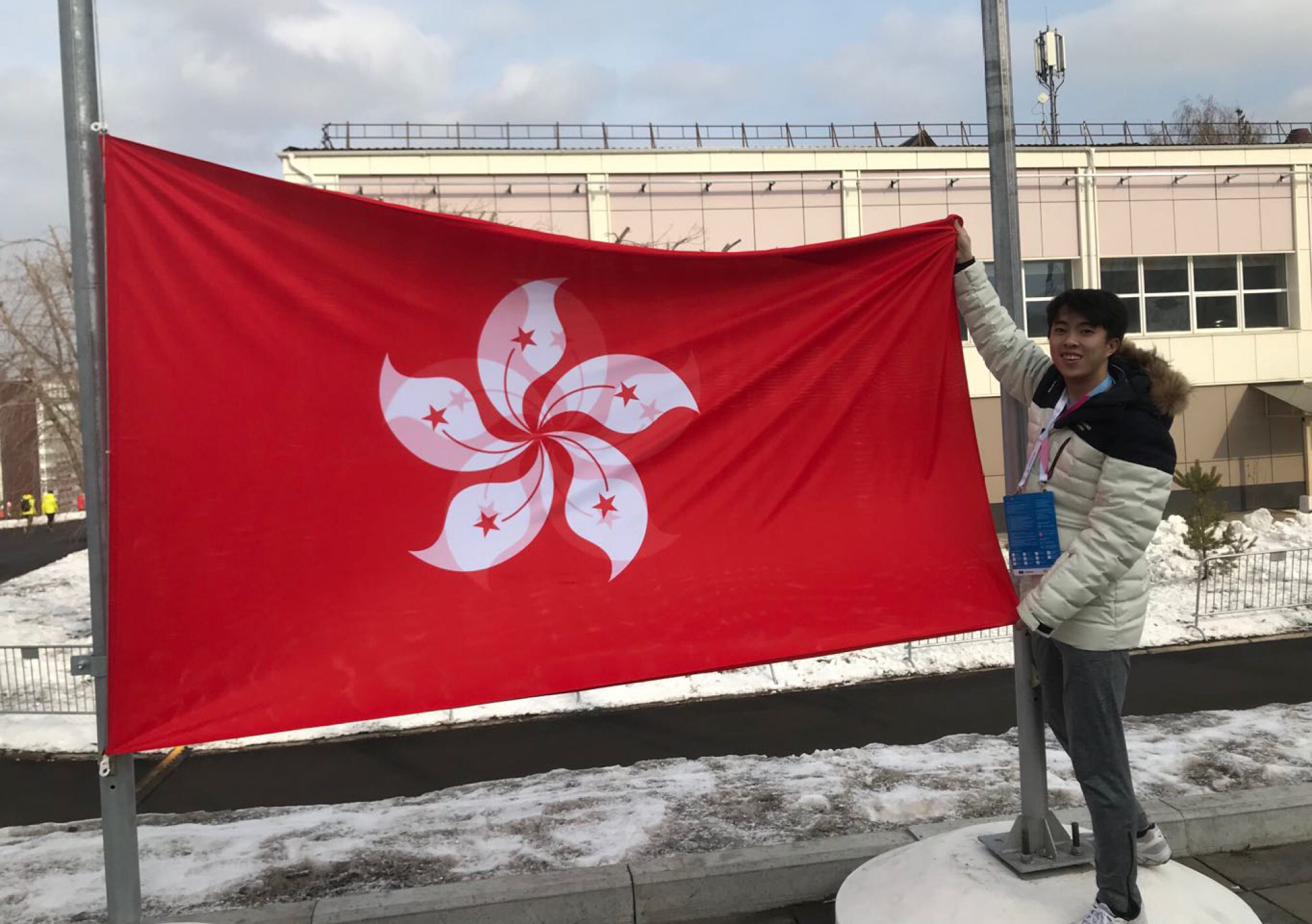
“I really liked going fast on the ice, but as I approached 11-12 years old, puberty hit at different times for people,” the former Hong Kong International School student recalled.
“I found myself playing with a whole bunch of these huge Canadian white guys – and I’m just a scrawny little Asian kid.
“There were these weekly speedskating classes for beginners and I immediately fell in love after joining. I started the sport kind of late, so I tried to play catch-up as much as possible. I would go abroad to hone my skills – a lot of travelling back-and-forth between [Changchun, Jilin Province] China and Salt Lake City.”
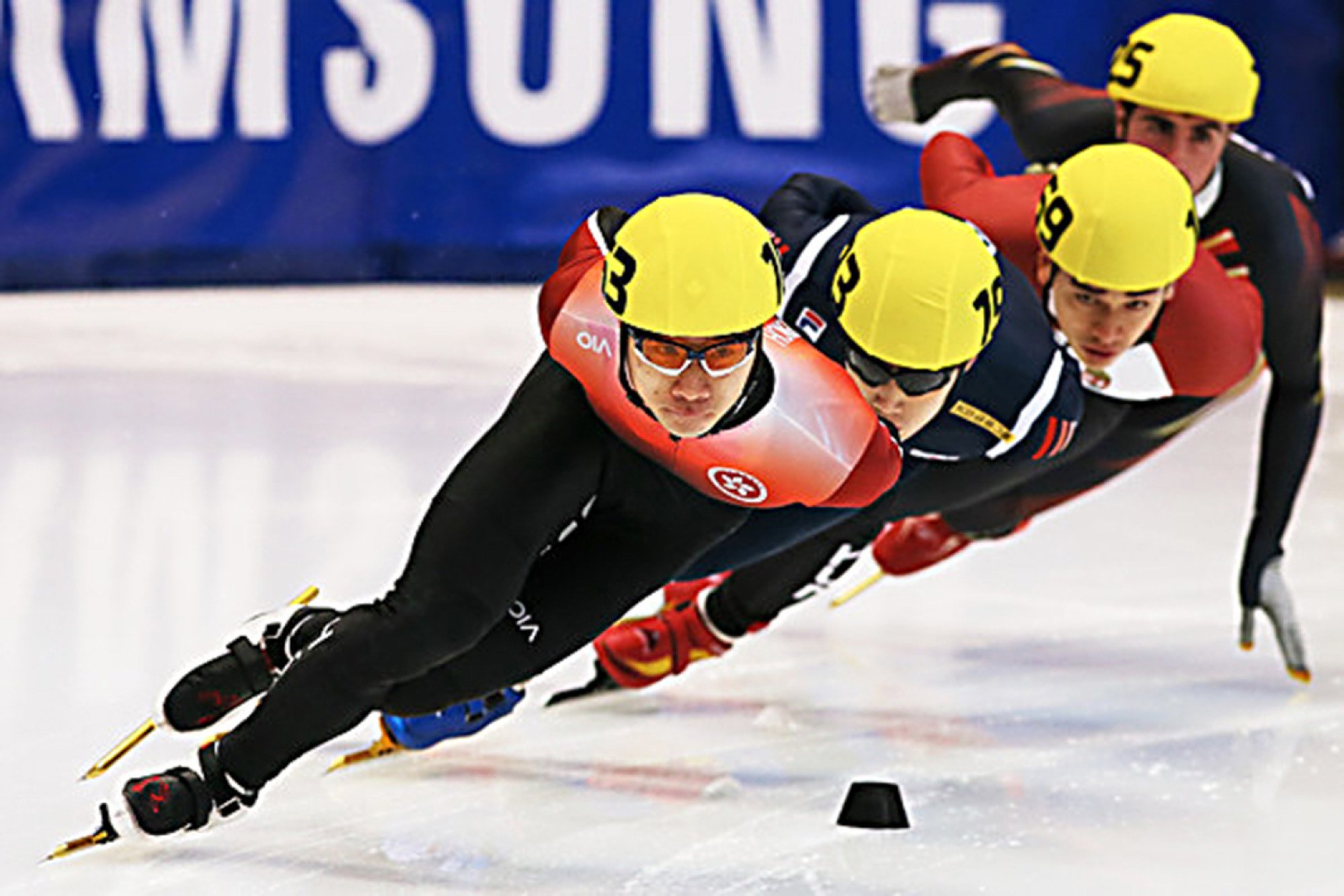
“Watching him on TV, and knowing him on a personal level, further inspired me. He’s a person who grew up in Hong Kong, who skated with similar resources that I did, and still excelled at the Olympic level. It was like if he could do it, so can I,” Chu said.
It looked as if Chu was heading for a dream Olympic berth at the 2018 Pyeongchang Games. Then it all appeared to come tumbling down.
“But we had World Cup qualifiers in just two and half months. So, I made a decision then that I wasn’t going to follow the normal risk-recovery prescription and was really going to do as much physiotherapy as I could to get back on the ice, regardless of whether I qualified or not.”
By then, Chu was already under the guidance of now-Hong Kong head coach Sun Dandan, a two-time Olympic silver medallist and Asian Games gold medallist.
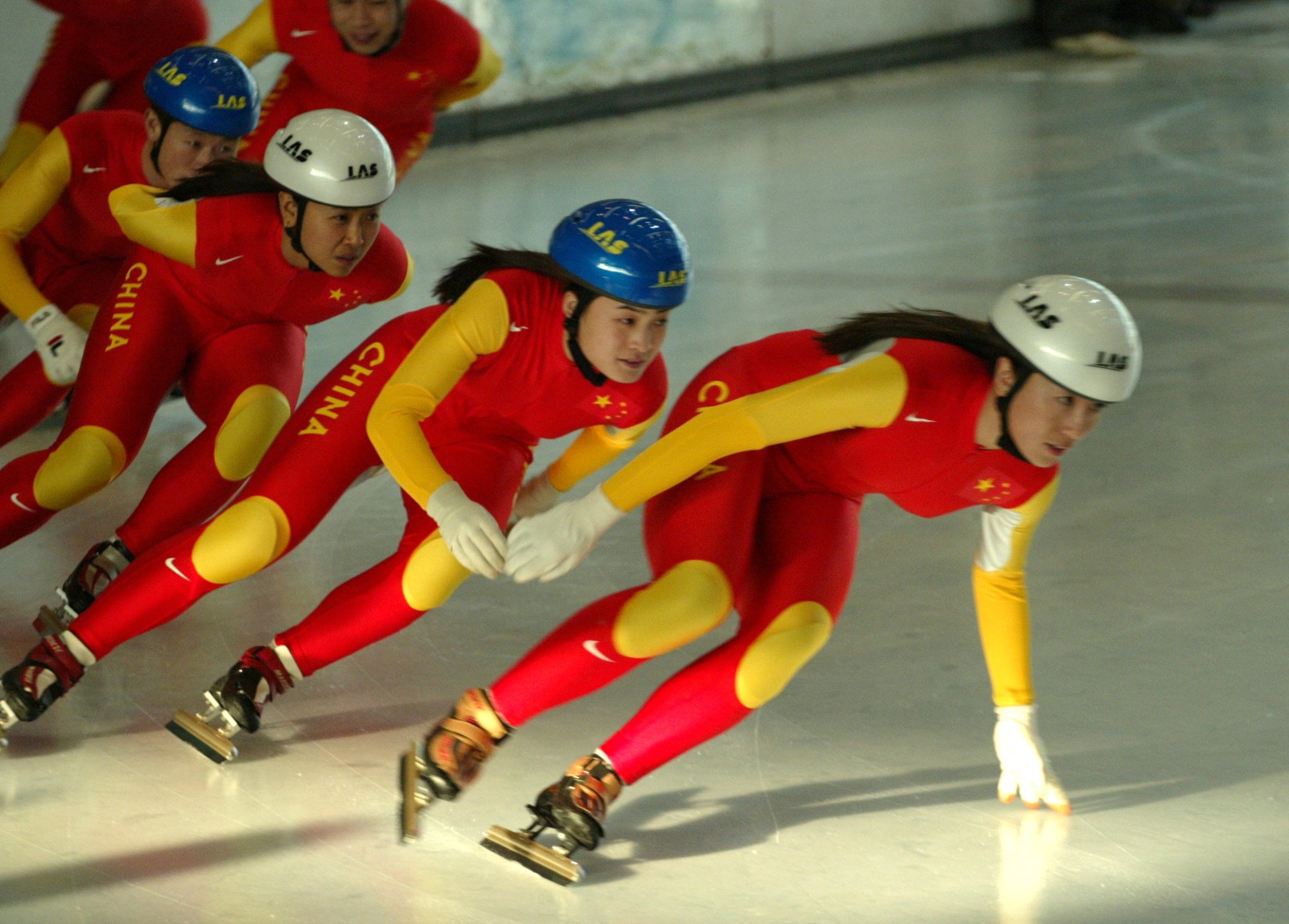
“I drew a lot of inspiration from Sun because she had the exact same injury on her left foot, and the exact same time two-month time-frame for the 2002 Winter Olympics, where she won a silver with a relay team,” Chu said.
“That whole process of recovery and fighting through pain, even when you know it’s very uncertain, developed my resilience and results. I learned how much the sport meant to me. How much the Olympics meant to me.
“Even though I wasn’t able to make it in 2018, I was still able to skate with the world’s best, and I wasn’t necessarily very far behind. That experience mentally has made me a better athlete.”

Chu won silver in the 100m and bronze in the 5000m relay at the Asian Championships a year later. He was also began a biology degree at the George Washington University in the US, which he chose based on proximity to US national team’s facilities.
“I hadn’t fully dedicated my entire life to [skating] at the time, but I had done well on the Asian and junior international circuits, so I wanted to tailor all my other elements so that I could further improve my skating,” Chu said, lamenting the impact of Covid-19 upon returning.
“I was able to train for two or three years which helped me improve a lot. Then coming back to Hong Kong, being stuck in the pandemic, made things a little worse. There’s still potential there to improve, but I think my peak and our four-year training cycle has been hindered by sort of pandemic.
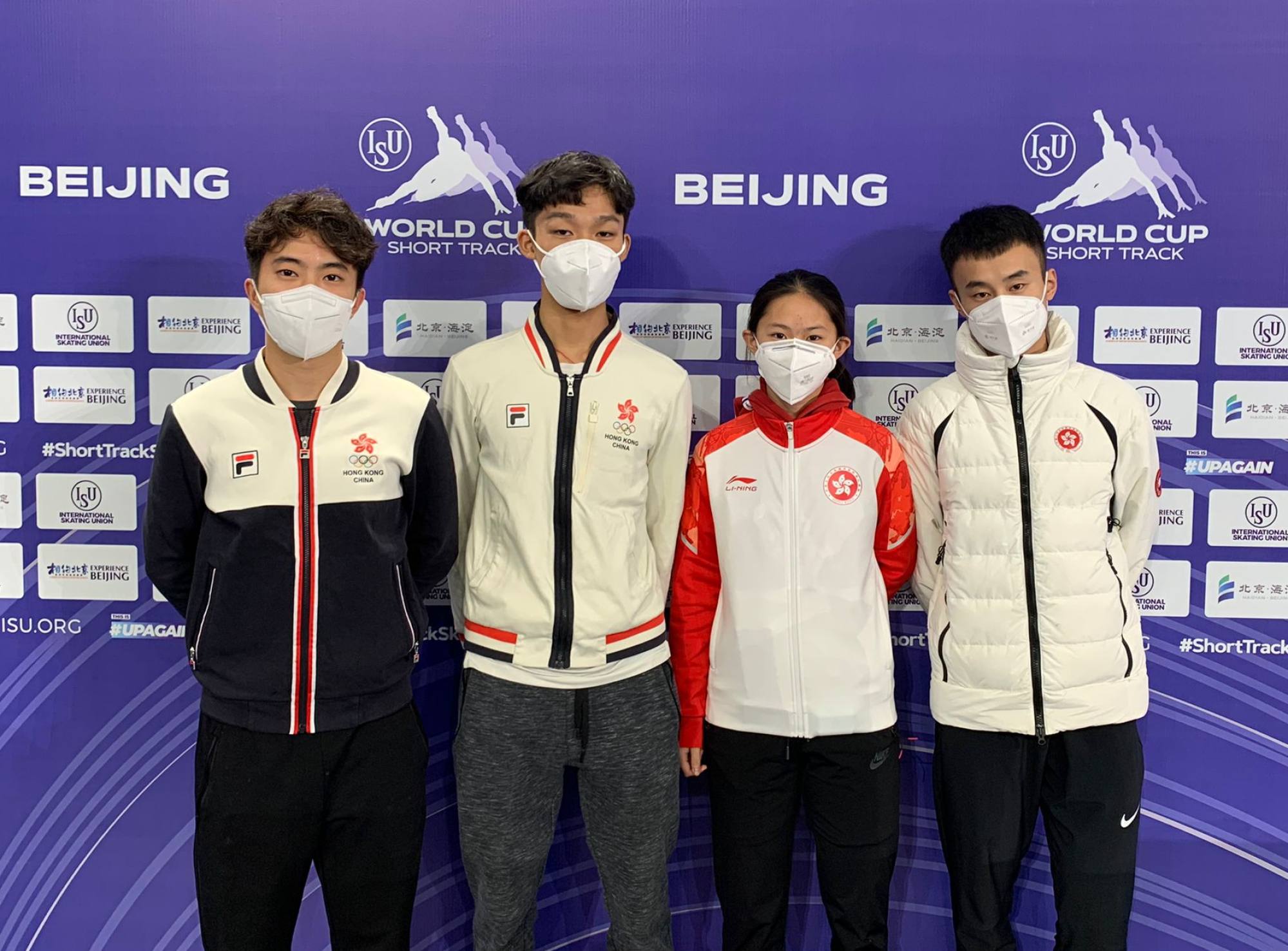
“Especially in short-track, you really have to have an understanding of other team strategies and dynamics. It’s not something that can be done through just watching YouTube videos of others skating.
“A lot of my shortcomings at the World Cup were really strategy- and not speed- or endurance-related – just really not understanding how racing strategies have evolved over the past two years.”
Hoping his achievement can reignite an influx of young speed-skaters, Chu reflected on his humble beginnings in the sport that looks to be rounding a turn.
Chu had previously told the Chinese University of Hong Kong’s Varsity that he would skate slower in Hong Kong’s rinks and “just expected myself to skate faster in competition – not an ideal training method”.
“There’s been a lot of improvement. But the reason it seems like a broken record [that Hong Kong does not have resources] is because it wasn’t there during the critical time – when the Hong Kong team really needed it,” Chu said.
“It’s definitely better for the next generation of speed skaters. We have two new ice rinks in Hong Kong that are closer to the standardised size. Although a little bit off, it’s still skateable and I have a lot of optimism that we’ll have more interest in sport.
“Since we got into the Hong Kong Sports Institute, we’ve also had a lot of sports science, medicine, and funding for our team to improve and go overseas. So it’s about gathering as much interest and talent going into the next few Olympic cycles.”

